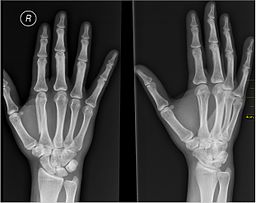Recognize The Physical Signs Of Anorexia
 Did you know that about 24 million people suffer from an eating disorder such as anorexia, bulimia and binge eating?
Did you know that about 24 million people suffer from an eating disorder such as anorexia, bulimia and binge eating?
Anorexia, one of the most common eating disorders, is a mental illness that if left untreated can result in death. If you suspect that a loved one may be suffering from anorexia, it is important to be aware of the physical signs of the disease so you can make sure they receive medical treatment before it’s too late.
Distorted Body Image and Physical Symptoms
People who suffer from anorexia have a distorted body image – they believe that they are extremely overweight, when in fact they are severely underweight and emaciated-looking.
Complications of anorexia stem from the overall lack of nutrition and calories the body receives. Some of these complications manifest physically and are easy to spot:
- Extremely Underweight: A person who is extremely thin, in which you can easily see their bones, is a common sign of anorexia.
- Broken Bones: Anorexia causes bones to become weak and thin, which may cause them to break more easily than a healthy person.
- Brittle Hair and Nails: Both hair and nails become thin and brittle, breaking easily due to a lack of nutrients in the body.
- Dry, Yellowish Skin: Extreme dryness and a yellowish tint can develop.
- Hair Growth in Abnormal Places: Fine hair, called lanugo, can grow all over the body.
- Tiredness: People with anorexia tend to feel tired all the time due to lack of energy caused by limited food intake.
- Infertility: Inability to conceive a baby due to lack of menstruation, or , which occurs in severe cases of anorexia.
Source: National Institute of Mental Health, National Association of Anorexia and Nervosa and Associated Disorders
 Eating Disorder Self Test. Take the EAT-26 self test to see if you might have eating disorder symptoms that might require professional evaluation. All answers are confidential.
Eating Disorder Self Test. Take the EAT-26 self test to see if you might have eating disorder symptoms that might require professional evaluation. All answers are confidential.